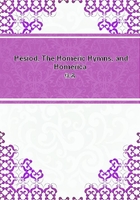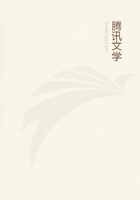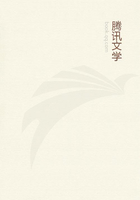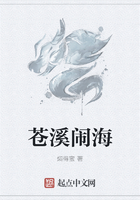Hesiod's father (whose name, by a perversion of "Works and Days", 299 PERSE DION GENOS to PERSE, DION GENOS, was thought to have been Dius) was a native of Cyme in Aeolis, where he was a seafaring trader and, perhaps, also a farmer. He was forced by poverty to leave his native place, and returned to continental Greece, where he settled at Ascra near Thespiae in Boeotia ("Works and Days", 636 ff.). Either in Cyme or Ascra, two sons, Hesiod and Perses, were born to the settler, and these, after his death, divided the farm between them. Perses, however, who is represented as an idler and spendthrift, obtained and kept the larger share by bribing the corrupt `lords' who ruled from Thespiae ("Works and Days", 37-39). While his brother wasted his patrimony and ultimately came to want ("Works and Days", 34 ff.), Hesiod lived a farmer's life until, according to the very early tradition preserved by the author of the "Theogony" (22-23), the Muses met him as he was tending sheep on Mt. Helicon and `taught him a glorious song' -- doubtless the "Works and Days". The only other personal reference is to his victory in a poetical contest at the funeral games of Amphidamas at Chalcis in Euboea, where he won the prize, a tripod, which he dedicated to the Muses of Helicon ("Works and Days", 651-9).
Before we go on to the story of Hesiod's death, it will be well to inquire how far the "autobiographical" notices can be treated as historical, especially as many critics treat some, or all of them, as spurious. In the first place attempts have been made to show that "Hesiod" is a significant name and therefore fictitious: it is only necessary to mention Goettling's derivation from IEMI to ODOS (which would make `Hesiod' mean the `guide' in virtues and technical arts), and to refer to the pitiful attempts in the "Etymologicum Magnum" (s.v. ESIODUS), to show how prejudiced and lacking even in plausibility such efforts are. It seems certain that `Hesiod' stands as a proper name in the fullest sense. Secondly, Hesiod claims that his father -- if not he himself -- came from Aeolis and settled in Boeotia. There is fairly definite evidence to warrant our acceptance of this: the dialect of the "Works and Days" is shown by Rzach (3) to contain distinct Aeolisms apart from those which formed part of the general stock of epic poetry. And that this Aeolic speaking poet was a Boeotian of Ascra seems even more certain, since the tradition is never once disputed, insignificant though the place was, even before its destruction by the Thespians.
Again, Hesiod's story of his relations with his brother Perses have been treated with scepticism (see Murray, "Anc. Gk.
Literature", pp. 53-54): Perses, it is urged, is clearly a mere dummy, set up to be the target for the poet's exhortations. On such a matter precise evidence is naturally not forthcoming; but all probability is against the sceptical view. For 1) if the quarrel between the brothers were a fiction, we should expect it to be detailed at length and not noticed allusively and rather obscurely -- as we find it; 2) as MM. Croiset remark, if the poet needed a lay-figure the ordinary practice was to introduce some mythological person -- as, in fact, is done in the "Precepts of Chiron". In a word, there is no more solid ground for treating Perses and his quarrel with Hesiod as fictitious than there would be for treating Cyrnus, the friend of Theognis, as mythical.
Thirdly, there is the passage in the "Theogony" relating to Hesiod and the Muses. It is surely an error to suppose that lines 22-35 all refer to Hesiod: rather, the author of the "Theogony" tells the story of his own inspiration by the same Muses who once taught Hesiod glorious song. The lines 22-3 are therefore a very early piece of tradition about Hesiod, and though the appearance of Muses must be treated as a graceful fiction, we find that a writer, later than the "Works and Days"by perhaps no more than three-quarters of a century, believed in the actuality of Hesiod and in his life as a farmer or shepherd.
Lastly, there is the famous story of the contest in song at Chalcis. In later times the modest version in the "Works and Days" was elaborated, first by making Homer the opponent whom Hesiod conquered, while a later period exercised its ingenuity in working up the story of the contest into the elaborate form in which it still survives. Finally the contest, in which the two poets contended with hymns to Apollo (4), was transferred to Delos. These developments certainly need no consideration: are we to say the same of the passage in the "Works and Days"?
Critics from Plutarch downwards have almost unanimously rejected the lines 654-662, on the ground that Hesiod's Amphidamas is the hero of the Lelantine Wars between Chalcis and Eretria, whose death may be placed circa 705 B.C. -- a date which is obviously too low for the genuine Hesiod. Nevertheless, there is much to be said in defence of the passage. Hesiod's claim in the "Works and Days" is modest, since he neither pretends to have met Homer, nor to have sung in any but an impromptu, local festival, so that the supposed interpolation lacks a sufficient motive. And there is nothing in the context to show that Hesiod's Amphidamas is to be identified with that Amphidamas whom Plutarch alone connects with the Lelantine War: the name may have been borne by an earlier Chalcidian, an ancestor, perhaps, of the person to whom Plutarch refers.

